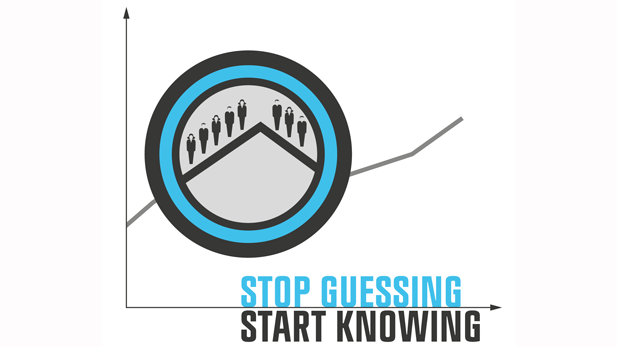Has your company discovered the benefits of human capital analytics?

By Claus Rosenkrantz Hansen
All things are difficult before they are easy, especially when it comes to human capital analytics. But now help is to be had for companies that would like to, but have not yet managed to get started with analysing their human resource (HR) data. The research team Human Capital Analytics Group, whose motto is “Stop guessing – start knowing!”, helps companies to become better at working with data analysis.
There is good reason not to base human resource decisions on conjecture or gut feelings. A company’s performance can fluctuate 22 percent depending on the decisions HR make.
Professor Dana Minbaeva at the Department of Strategic Management and Globalization is one of the researchers behind the Human Capital Analytics Group. Her experience shows that most companies are more than willing to base their HR decisions on qualified data analysis, but that they find getting started difficult.
“Things are starting to happen in the field, but a good deal of companies that want to work with data analysis struggle to take the step from data management and reporting data to actual predictive analytics. This is where our research team comes into the picture. With our research-based knowledge and methods in hand, we can meet with companies and prepare them to take that step,” explains Minbaeva.
Companies already possess the data
The situation is such that most Danish companies already have data from HR records, facts and figures, for example on customer satisfaction and productivity. The stumbling block companies run into, however, is transforming this data into knowledge that supports their strategic goals. And this is where the group shows up to give a hand.
“We sit down with companies to describe and determine what they would like to have analysed. Then we do the actual breakdown based on the description and data companies supply. In addition to our findings, we give the companies data sets and codes for doing statistical analyses so they can do their own studies in the future,” explains Minbaeva.
The goal is ultimately for companies to become so familiar with data analysis that they can independently determine which models should come into play when. The idea is for companies to become consumers of analytics and to be constantly on the lookout for what type of data-based analyses the company needs.
“Economists have done this for a long time – why not spread this practice to making HR decisions?” asks Minbaeva.
“Not only that, HR should ask the questions and drive the demand for analyses. But remembering to get management on board is also important. They must be made aware of the possibility that these analyses can be obtained from the HR department.”
Scientific articles insufficient for companies
Historically, research on HR analytics has been carried out since the mid-1990s but has never been implemented in companies. According to Minbaeva the reason for this is that research findings have never been made available in a way that allows companies to fully adopt them and work with them systematically.
“Research doesn’t reach companies right away once an article has been written. Scientific articles in journals have very little significance for practitioners. There’s a need for findings to be disseminated and delivered in a way that makes it possible for companies to better relate them to their organisation’s needs,” she explains.
This is what the researchers are attempting to do in the Human Capital Analytics Group, which is helping to refute the myth that researchers simply sit in their ivory towers untouched by the outside world.
“Our goal is to bridge the gap between research and practice. We’re primarily interested in helping companies, but working with them is also a must for us to advance our research, which means that companies are also helping us out,” adds Minbaeva.
The group’s most recent efforts involve developing an online tool to allow companies to quickly, easily and at no expense have their profile as users of human capital analytics described.
The aim is to give companies a place to start so they know where to focus their efforts regarding human capital analytics. Also in the spirit of the motto “Stop guessing – start knowing!”
|
Dana Minbaeva is a professor at the Department of Strategic Management and Globalization.
Participate in Connecting People and Performance - Human Capital Analytics – a summer course that provides the participants with a deep understanding of the nature of human capital analytics and a toolkit - via practical exercises - on how to do that.
Read more about the Human Capital Analytics Group.
The Human Capital Analytics Group is supported by the CBS Competitiveness Platform. The purpose of the platform is to unite and enhance CBS research and education as well as interact with the business community on the issue of competitiveness. |